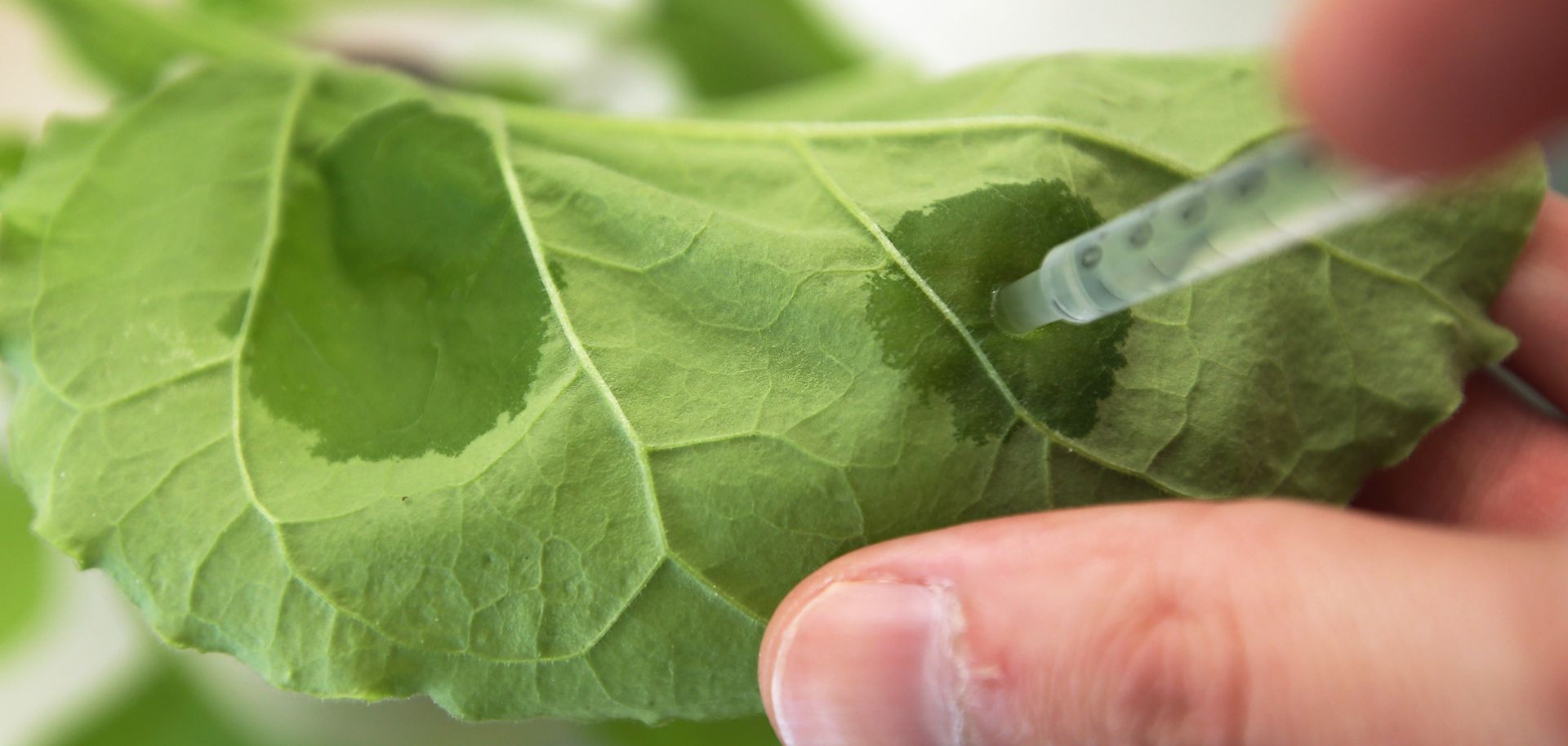ASSESSMENTS
Genetic Editing: Avoiding the GMO Controversy
Jul 31, 2015 | 09:04 GMT

Dr. Frank Thieme, manager of development at Icon Genetics, demonstrates the small-scale introduction of bacteria containing engineered DNA into Nicotiana benthamiana, a close relative of tobacco.
(SEAN GALLUP/Getty Images)
Forecast Bullets
- As new technologies lead to reduced costs and improved accuracy, gene editing will become more prevalent.
- Social debate and the inherent complexity of gene editing will delay applications in health care.
- Gene editing will advance both industrial and agricultural biotechnology, but it is in the agricultural sector that gene editing will be most used in the near term.
- The United States will remain a world leader in agricultural biotechnology, though China will likely become more competitive.
Subscribe Now
SubscribeAlready have an account?
